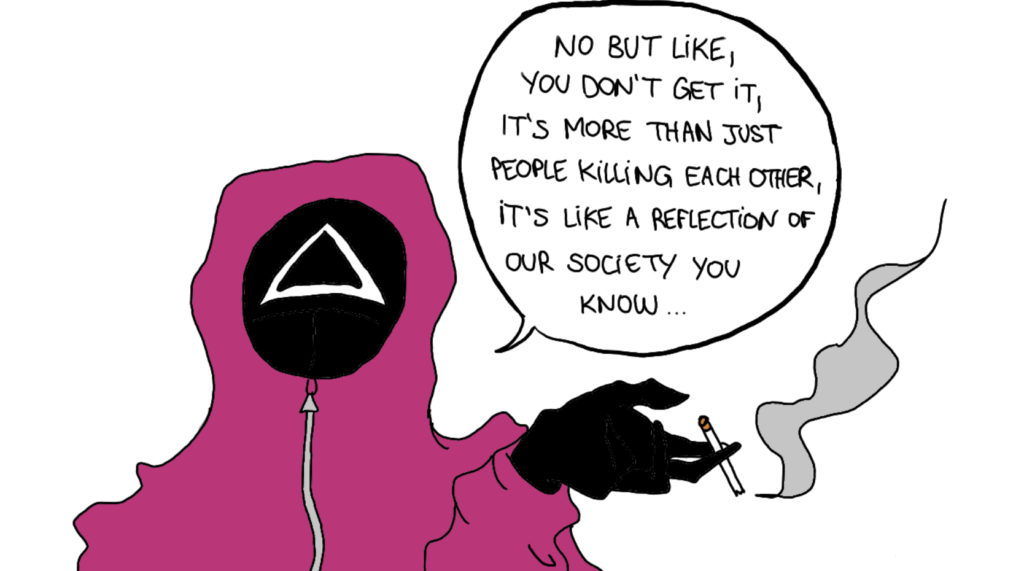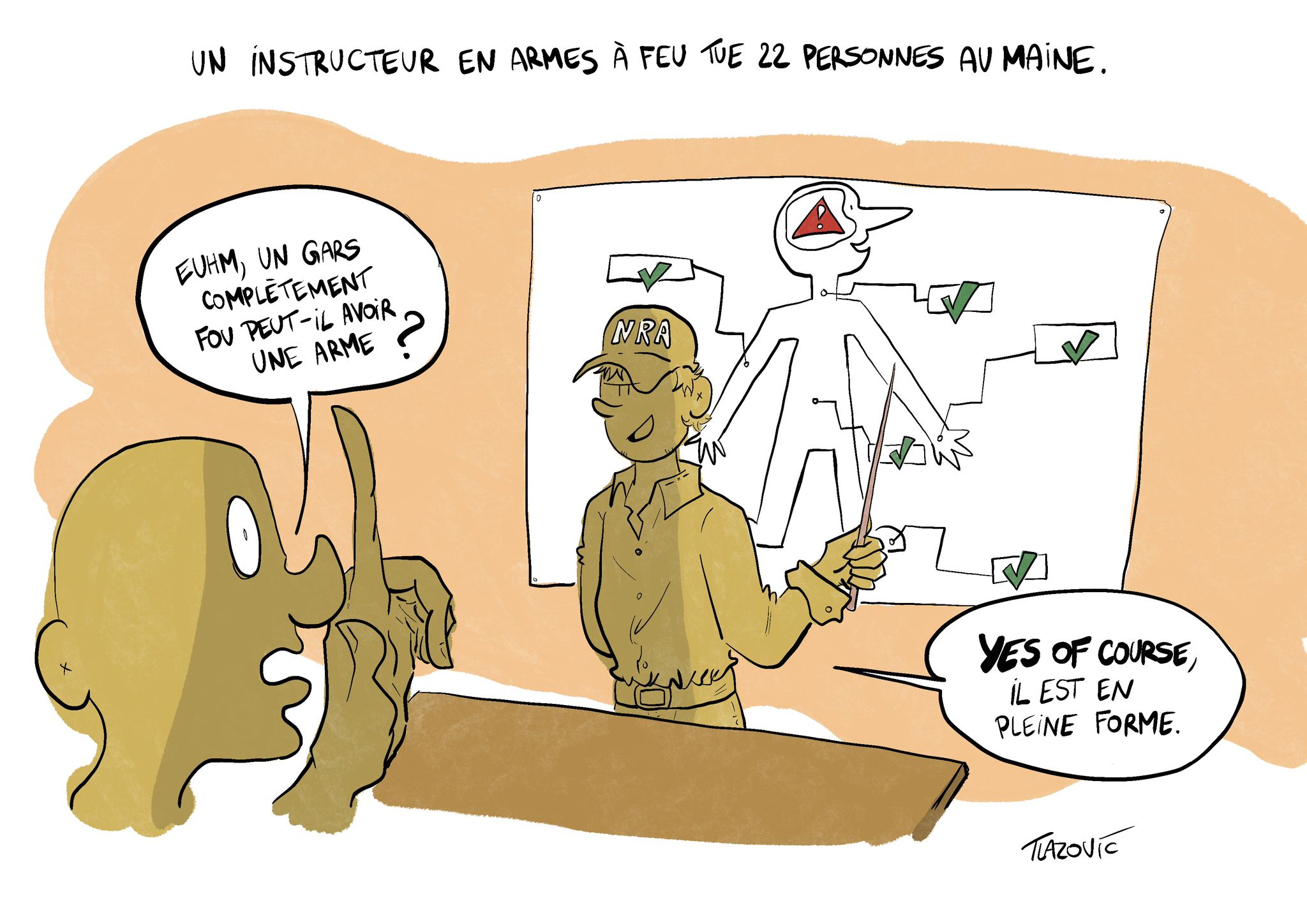The Korean series offers precisely what reality TV cannot: individuals killing each other
What can we possibly say about Squid Game after the worldwide attention it has received without falling into the most mundane pretension?
The initial excitement caused by the Netflix series, which is on its way to breaking world records, does not look set to abate [1]. The success of what is labeled as the “Korean Hunger Games” is surprising precisely because of its origins. Disregarded by the western mainstream, the productions of fictional Korean series, with their assumed authenticity, well differentiated from the internationally accepted American style, have never known such a marked rise.
Its success, however, is actually hardly surprising given that it offers the spectators a meticulous cocktail, made up of what entertains them incurably. Let’s first come up with a conventional pitch:
“Hundreds of indebted competitors are taking part in children’s games for a ridiculously large sum of money”
This is a reality TV concept that would arouse more or less collective interest – we like to watch real situations, or at least, the idea is appealing to us. A phenomenon practiced since ancient times; the gladiators fought before the mesmerized eyes of a crowd of ordinary people like you and me. However, Squid Game, being a work of fiction, offers precisely what reality TV cannot: individuals killing each other. Thus, we successfully complete our pitch: children’s games, where there can only be one survivor.
All this attraction for the morbid mixed with childhood fun, the whole aesthetic proposition of the concept, and above all, the realistic universe of the story that prompts us to question our human nature … certainly, these are interesting factors to note in the case of a study on what makes the series top the charts on Netflix, but the point is, it suffices to throw a bunch of characters against deadly stakes to entice a large audience – be they Korean, American, or whatever. The fascination for the ineluctable system of subtracting candidates (And there was only one left …) will always prevail.

A bit like a guilty pleasure, a sudden craving for McDonald’s, Squid Game is junk food: low value, which gives us an utterly foolish pleasure. Maybe the term junk food naturally has a negative connotation, but this is not a critique – Squid Game is good junk food, the execution being practically excellent. It’s one thing to attract an audience; keeping them to the end is another.
It would no doubt be tempting to attack Netflix with prudish reasoning, describing its success as an ode to society’s lack of intellectual aspiration, or some other kind of unnecessary spiel. The fact is, Squid Game cleverly performs its task as entertainment; like a Burger King accomplishes its fast food mission wonderfully too.
The first time I looked through the trend catalog, I remember trying to make myself believe that the concept didn’t really interest me – much like when you face a deliberately tempting and effective Youtube thumbnail, which makes you say that the substance is necessarily disappointing. I realized I had a slightly snobby reasoning – there’s nothing wrong with watching something that doesn’t claim to be a cinematic masterpiece. You have to watch a bit of everything; good things, less good things… People with capacity for discernment will always get something out of it, whether it’s an intellectual challenge, or a simple smirk.





Laisser un commentaire
Vous devez vous connecter pour publier un commentaire.